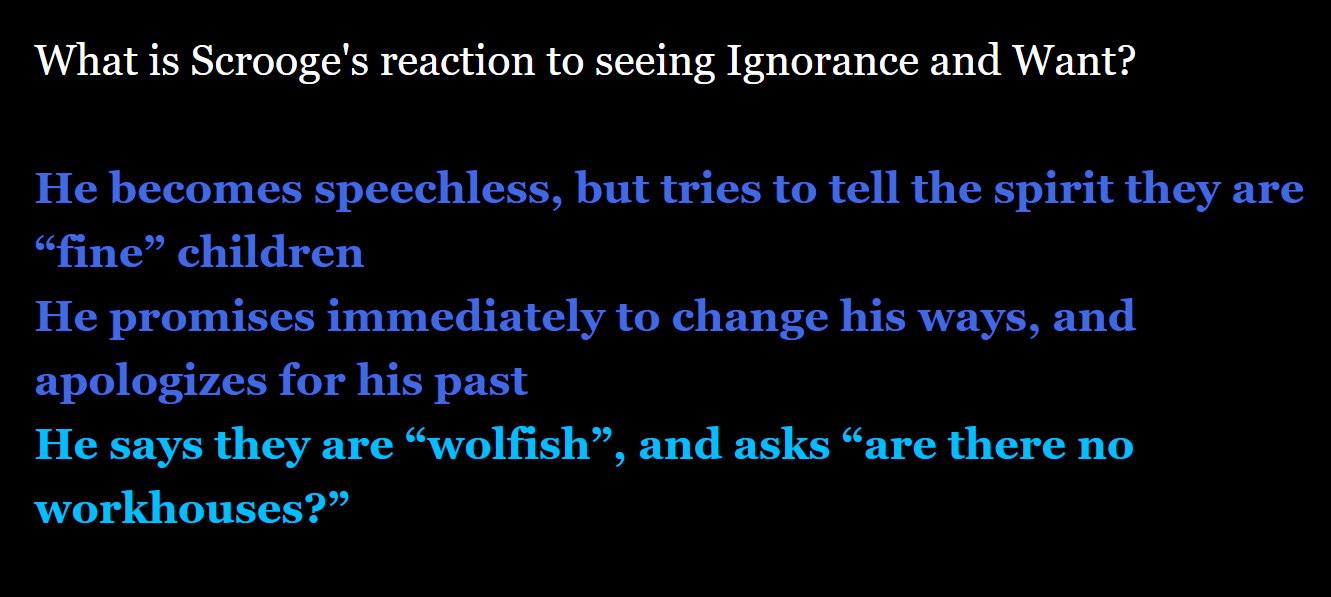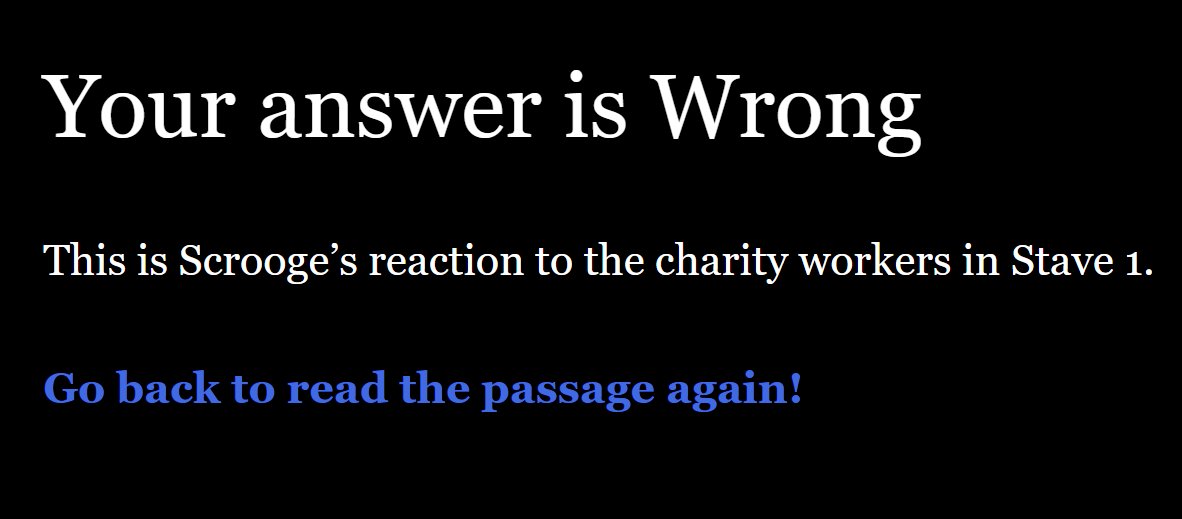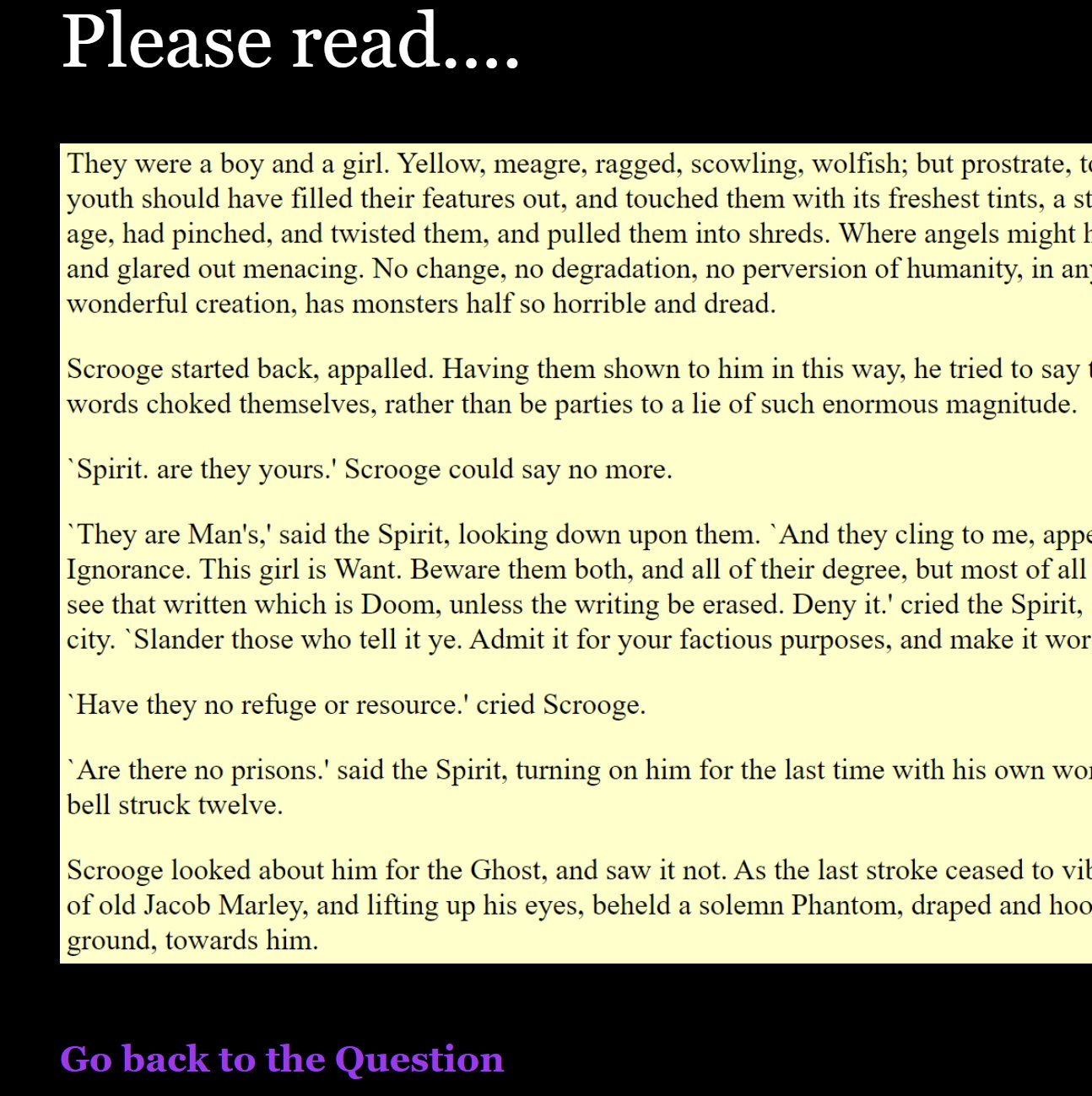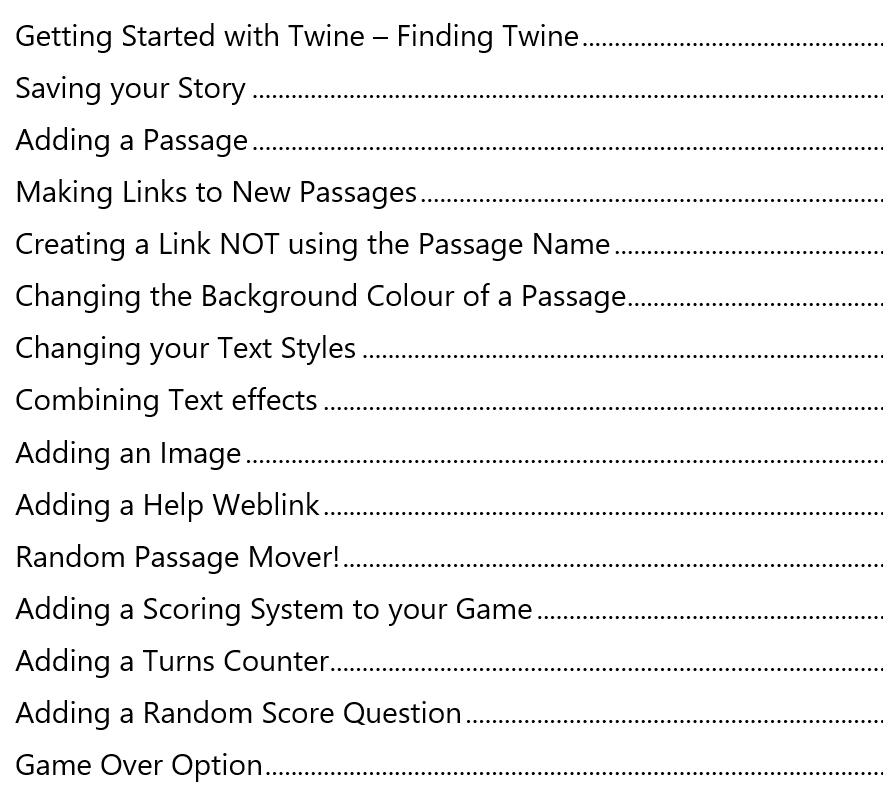Interactive Fiction with Twine and Canvas at K12
- Subscribe to RSS Feed
- Mark as New
- Mark as Read
- Bookmark
- Subscribe
- Printer Friendly Page
- Report Inappropriate Content
Twine is great for writing text based adventures. There is no downloading required and the files stay on your browser. You just need to make sure you don't delete your History (although you can archive and download files to back-up/replace)
I am currently working with Clare in the English department to produce interactive Year 11 GCSE revision resources on Charles Dickens - A Christmas Carol.
Like many things in a school setting, the idea was conceived quite by happenstance. Clare and I were meeting to talk about something completely different and I just happened to mention this cool software I was playing about with to make a homework task for my Physics class. Clare had a look at the quiz I was working, liked what she saw, could see it working for her students and asked if this was something I would to get involved in. When I asked Clare when she thought about doing it, she replied, "how about this afternoon"!!
So getting down to work (with a little more urgency), Clare first created 5 Groups on her Canvas course and assigned each group to a separate stave (chapter) in the book.
She then made a series of Collaborative documents in Word (we have Office365 integration and students have 1-1 devices) on to which each Group would write their questions, answers, pathways, links to text etc:
Students concentrate on creating the questions and answers in the Word document and I have been supporting the teacher to convert the students work into a quiz game.
Twine is not a difficult programme to use and there is no requirement to use any coding at all to create a very creative game. Each question is written in a Pathway and "coded" to another pathway. Once you get the hang of the convention then it is not at all taxing (I added a bit of html)
The picture below shows the very straightforward GUI and design area that displays the links between Pathways (pages). These can be moved around on the page to make troubleshooting and checking progress a breeze!
With a bit of practice, even the HTML stuff is not an impossible achievement...courtesy of some Google searches and the Twine help guide..
There are lots of simple but cool things you can do like link to external websites and even do some gamification by displaying how many turns students have had.. I am learning how to do this for another adventure for my Space Unit.
Next time, we plan to get students to create their own twines using templates that make things easier to copy and paste in the code. eg
Having a Canvas course means that students could save images into their own Files area and link to them from there.
Publishing the games is very straightforward. The games download to a single html page which is brilliant! I have used this great help guide to then embed the games into a Canvas page - Embedding a Webpage in a Canvas Page: Lennox Training Course
There are lots of other Canvas users looking at Twine - laurakgibbs has published some great stuff eg You really CAN play Twine games in Canvas: Step by Step and Games, Blogs, and Canvas.
It is also well worth checking out @keeganlong-whee student compilations on his website - Student Twine Games Collection & Resources – Keegan Long-Wheeler
And,finally, a HUGE thank you to Clare for preparing to take a risk, for having faith in me (I had only started looking at the software 3 days ago) and for backing the students to rise to the challenge - which they most definitely have.
Screenshots of some of the students questions - this from Stave 3:
I added in a simple Turns variable to show them how many turn they took for each quiz:
UPDATE: 5 Dec
Moved on to look at Twine with a Physics group studying Space. Students want to have running scores on their games. Just discovered variables that can be used as scores. Has now revolutionised the game and incredibly simple to do!
HELPSHEETS
I wrote some step by step helpsheets. Happy to share with anyone who asks (they have a Space theme):
Of course this post was only an attempt to stall my journey into Minecraft land with @Bobby2 - that is where I am off to tomorrow, to work with Suzanne and her Year 8 Science students to create an Energy Transfer World and summative assessments using this fabulous resource from the amazing Ben Spieldenner - Review Game Template World | Minecraft: Education Edition and Review World Game Template-MEE World Walkthrough - YouTube
You must be a registered user to add a comment. If you've already registered, sign in. Otherwise, register and sign in.

















